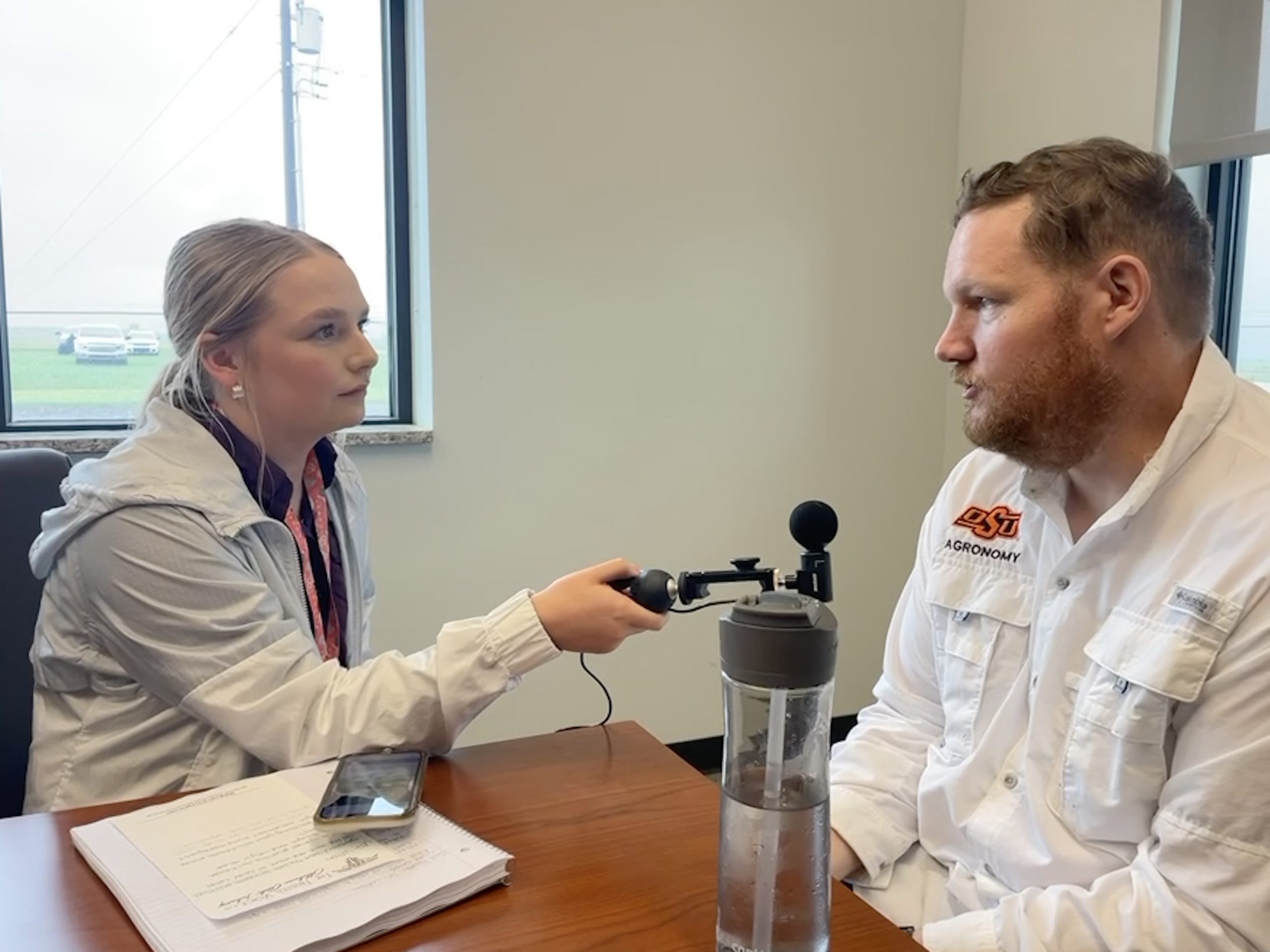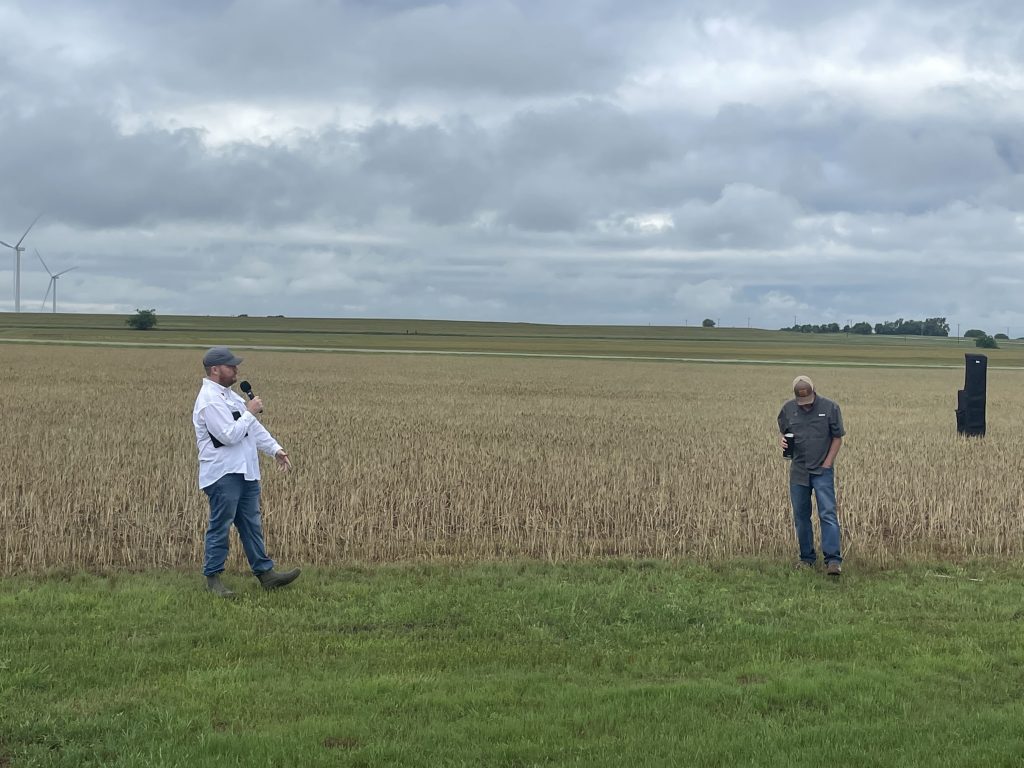
At this year’s Lahoma Wheat Field Day, Radio Oklahoma Ag Network Intern, Maci Carter, had a chance to visit with Associate Professor and Extension Economist of Cropping Systems, Josh Lofton, about the benefits of implementing cover crops.
“We’ve found that if growers are interested in it, they can fit it in their system and select the right cover crops to get to get the outcome they really desire,” said Lofton.
Lofton said he has no doubt that cover crops can be implemented in almost any operation. He explains they may not always be the answer, but they are a broad tool for improving soil health.
“Generally speaking, the more you integrate some of these practices, you know, things like cover crops, and no-till, good crop rotation, good diversity in your cropping systems, the more resilient your system is going to be,” Lofton said. “So the more likely it is over time, they will fit in better and better.”
Lofton said soil health has proven benefits; however, it is not an overnight fix. He explained that these things take time to make a large and positive impact, but the benefits they can provide to a farm have proven to be worth it.
“The biggest thing is just, I always tell growers to do that one thing that you think is going to help,” Lofton said.
Lofton explained that cover crops are a learning curve. The best approach is changing one thing at a time and learning from our mistakes. He also added that soil health is a lot about finding what works best for your operation and making the little changes to improve that over time.

Growers that practice good soil health, Lofton said, build resistance when drought comes.
Oklahoma is no stranger to drought, however, Lofton said growers who have been doing better soil health practices are seeing a resilience to things like a drought. Like with anything, these practices have their own challenges, and Lofton explained it as a “kiss curse,” but playing the long game can have immense benefits for any operation.
“I think very few people ever got it right on the first time,” Lofton said. “You have to give it time. You know, we have talked to growers, and they want to give these practices one or two years. When you’re in a system where you’re going to make mistakes, you know one or two years isn’t necessarily going to make it work, so give it some time.”
Keep your eye on the prize and what you want to get out of your field, Lofton said, by continuing to practice soil health.


















